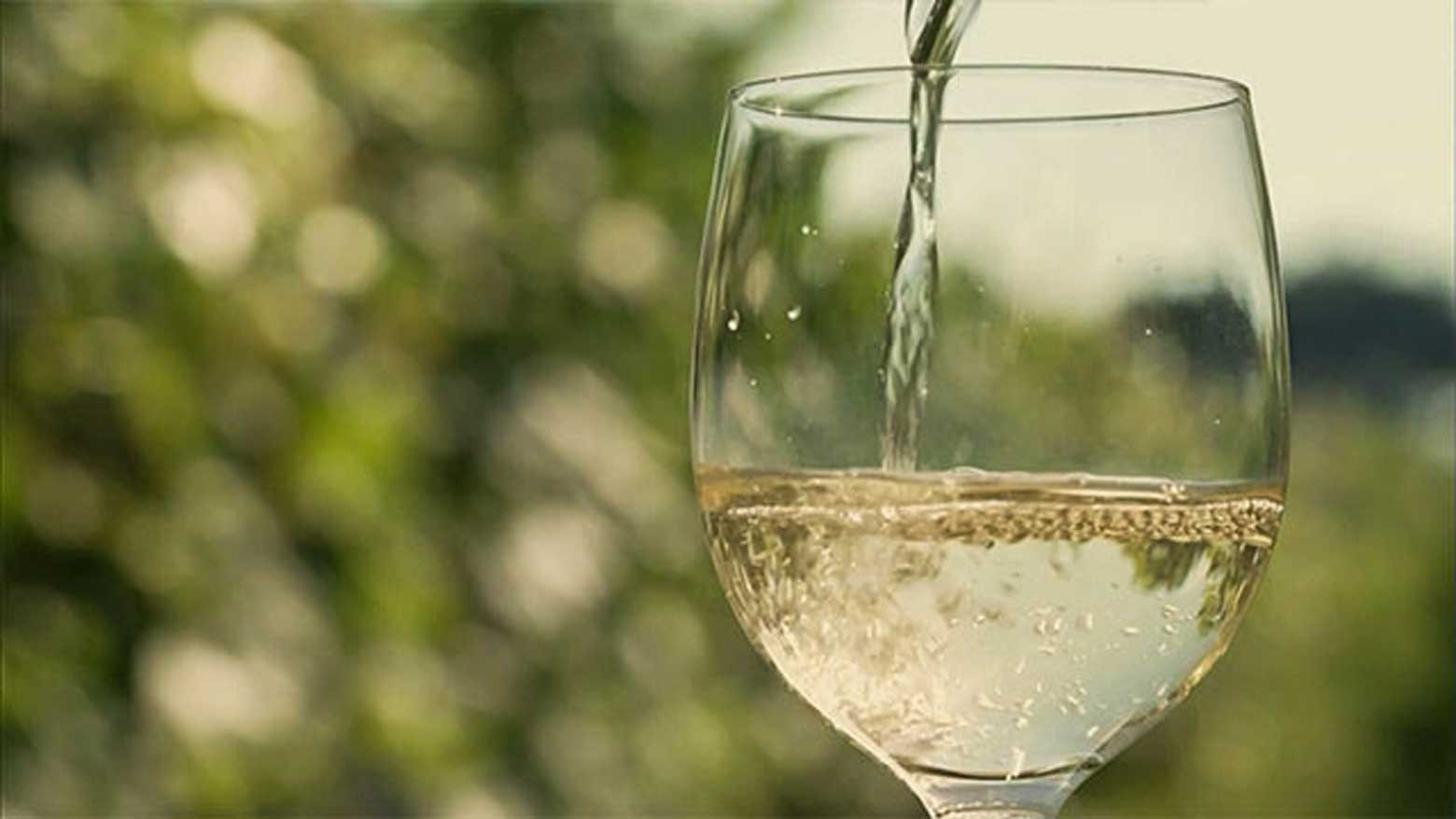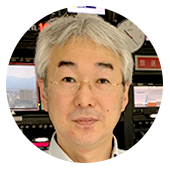Yamanashi consortium steps up
According to British market research company the IWSR, land devoted to organic grapes is increasing globally at an average annual rate of 10 percent or more, accounting for 6.2 percent of vineyards worldwide.
Japan wants to be part of the trend. The government revised laws this year and launched a new certification system to support the export of organically grown products.
Japan's largest wine production region, Yamanashi Prefecture, has embarked on an organic journey in an approach that was previously considered too difficult.
A consortium involving the Yamanashi University Wine Science Research Center, local wineries, and other interested parties, is leading the charge.
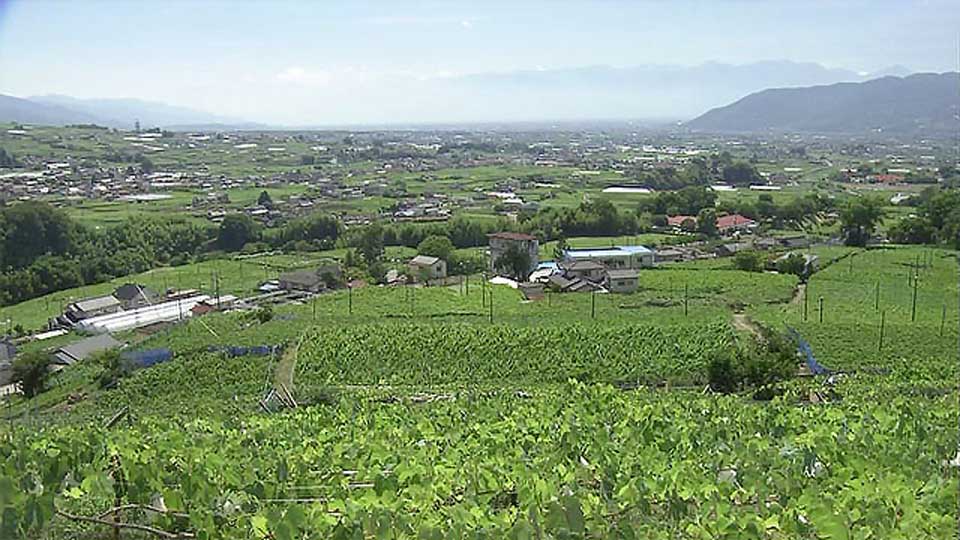
Predicting agricultural disease outbreaks
The consortium has harnessed AI to develop Japan's first agricultural pathogen outbreak forecasting system.
Sensors are installed in vineyards to measure temperature, humidity and other factors related to grape growing and cultivation. The information collected is then sent to a cloud-based system.
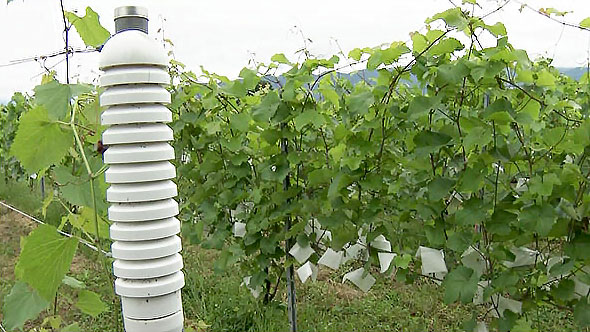
Then AI uses data such as past weather information and prior pathogen outbreaks to predict the risk of upcoming problems.
If it determines, for example, that the level of rainfall has raised the risk of disease, it sends a warning to growers' smartphones so they can take prompt action.
The system provides other useful information, including flowering times, fruit thinning schedules, and when to use natural fertilizer.
Winemaker Aruga Sho says the technology is groundbreaking: "It is attractive for growers because it allows us to obtain a variety of information on our smartphones and see data we've previously not been able to access."
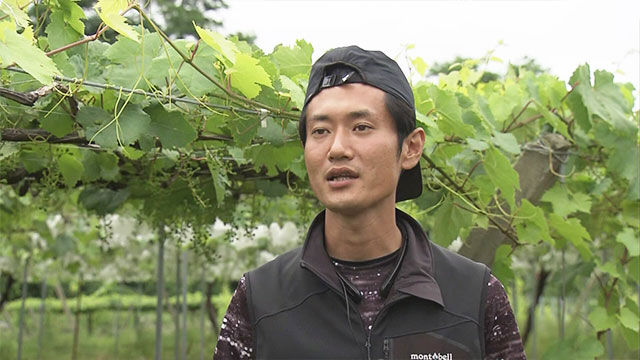
Tackling downy mildew
The Yamanashi University Wine Science Research Center has also developed a kit to inspect vine leaves and stems to determine the type, amount and other details about any pathogenic organisms present.
They claim it can predict when disease will break out, allowing growers to take preventative action.
The kit is expected to be an effective tool to keep a mold called downy mildew at bay. Mildew poses a particular problem for Japanese agriculture given the hot and humid conditions during summer. It is one of the main reasons for Japan's reliance on pesticides and artificial fertilizers for crop cultivation.
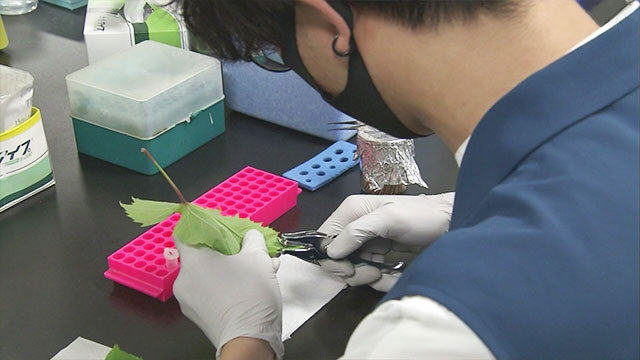
Suzuki Shunji, director of the Yamanashi University Wine Science Research Center, says "by the time a disease like downy mildew appears on the surface of the leaves, it's already too late. Predicting disease outbreaks with this system enables us to control them using minimal pesticides."
The more growers that use the AI system, the better it will become, as more data means more accurate forecasting. With this in mind, its developers are calling for increased participation among local wineries, farms, and other agricultural enterprises.
